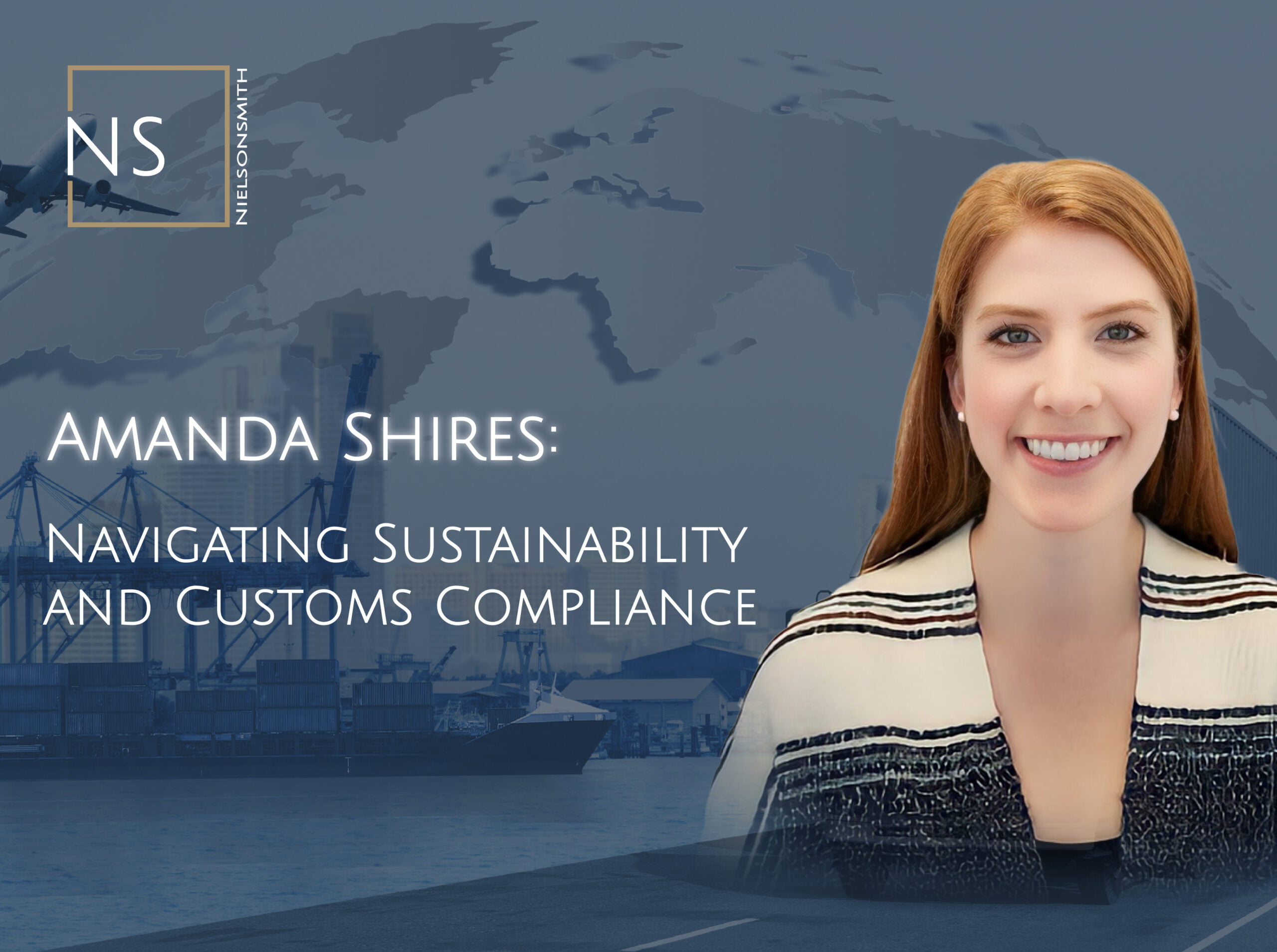In today’s environmentally conscious world, the convergence of sustainability and customs compliance has become increasingly critical for businesses worldwide. Amanda Shires, Trade Compliance Official at Xylem, is set to deliver a compelling presentation at the upcoming Customs Compliance in the UK conference, offering invaluable insights into navigating this complex landscape.

Customs Compliance in the UK Conference, 6 – 7 March 2024, London, UK
Xylem: Leading Global Water Technology Company
Before delving into the presentation details, it’s crucial to understand the context of Amanda’s expertise. Xylem, a global water technology company, stands at the forefront of addressing the world’s water challenges. With a mission to create advanced technology solutions, Xylem develops products and services that move, treat, analyse, and monitor water across various sectors. Amanda’s role at Xylem underscores her deep understanding of international trade dynamics and regulatory frameworks, making her a trusted authority in the field of customs compliance.
Presentation Focus: European Green Deal and Its Implications
Amanda’s presentation will explore the intersection of sustainability initiatives and customs compliance, with a particular focus on the European Green Deal (EGD) and its far-reaching implications. The EGD, launched in 2019, represents the European Union’s ambitious strategy for achieving climate neutrality and environmental sustainability.
Key Topics Covered in the Presentation:
1. Carbon Border Adjustment Mechanism (CBAM)
The Carbon Border Adjustment Mechanism (CBAM) emerges as a crucial component of the European Green Deal, aimed at preventing carbon leakage and ensuring fair competition for EU industries. CBAM, an integral part of the EU’s strategy to achieve climate neutrality, imposes a carbon price on certain imports to align with the carbon pricing mechanism within the EU. This mechanism aims to level the playing field by holding importers accountable for the carbon emissions embedded in their products, similar to EU producers subject to the EU Emissions Trading System (ETS). Initially targeting specific high-carbon-emitting products such as cement, iron/steel, and aluminium, CBAM’s scope may expand in the future. Importers will need to purchase carbon certificates to cover embedded emissions, with a transitional phase underway and a permanent system scheduled to commence in 2026.
2. EU Regulations on Deforestation-Free Products
The EU Regulations on Deforestation-Free Products represent a pivotal initiative under the European Green Deal to combat global deforestation and ensure sustainable sourcing practices. These regulations, effective since June 2023, target specific commodities like soy, beef, and palm oil, known contributors to deforestation. Traders are required to demonstrate that their products originate from sustainable sources and do not contribute to deforestation or forest degradation. Compliance entails rigorous due diligence measures, including satellite monitoring, field audits, and supplier capacity building. By promoting transparency and accountability in supply chains, these regulations aim to mitigate the environmental impact of EU consumption patterns and support sustainable forest management practices worldwide.

3. EU Chemicals Regulations and UK Companies
The EU’s Chemicals Regulations play a significant role in shaping the regulatory landscape for UK companies post-Brexit. With over 40 pieces of legislation in place, including REACH, the EU aims to achieve a toxic-free environment while enhancing the competitiveness of the chemicals industry. The EU’s new chemicals strategy, aligned with the European Green Deal, seeks to streamline regulations, phase out harmful chemicals, and promote substitution with safer alternatives. Despite Brexit, UK companies exporting to the EU must adhere to EU chemicals regulations to maintain market access. Compliance requires thorough understanding and implementation of regulatory requirements, including product registration, evaluation, and authorisation. The proposed phase-out of substances like PFAS underscores the EU’s commitment to environmental protection and human health. UK companies must stay abreast of regulatory developments and adopt proactive measures to ensure compliance and competitiveness in the EU market.
4. European Green Deal Impacts on UK Companies
The European Green Deal poses significant implications for UK companies engaged in trade with the EU. As the EU strives to achieve ambitious climate targets, UK exporters face increased scrutiny and regulatory requirements. Importers may seek detailed information on supply chain practices, carbon emissions, and product sustainability, necessitating enhanced transparency and documentation from UK companies. The implementation of CBAM and other green taxes may lead to higher compliance costs for UK exporters, impacting competitiveness in the EU market. While most EU Green Deal regulations apply to Northern Ireland, the UK government’s alignment with EU standards could facilitate smoother trade relations and mitigate regulatory burdens for exporters. However, diverging environmental regulations and political priorities may pose challenges for UK-EU trade relations in the long term.
5. UK Net Zero Strategy: Build Back Greener
The UK’s Net Zero Strategy, outlined under the “Build Back Greener” initiative, sets out ambitious policies to decarbonise the economy and achieve net-zero emissions by 2050. With targets to phase out petrol/diesel cars and gas boilers by 2035, the strategy emphasises a transition to renewable energy and low-carbon technologies. Measures such as the Ultra Low Emission Zone (ULEZ) and carbon pricing through the UK Emissions Trading System (ETS) aim to drive emissions reductions across sectors. Additionally, the strategy prioritises investments in low-carbon farming, reforestation, and greenhouse gas removal technologies. However, environmental regulations and policies may face resistance from certain sectors and policymakers, highlighting the need for robust governance and stakeholder engagement to ensure successful implementation of the UK’s Net Zero Strategy.
By attending Amanda Shires’s presentation, participants will not only gain a deeper understanding of sustainability initiatives but also acquire practical strategies for aligning customs compliance with environmental stewardship goals. Don’t miss this opportunity to gain invaluable insights from a seasoned expert in the field.

Ms. Amanda Shires,
Trade Compliance Official, Europe, Xylem
Amanda is originally from the USA and started her career in International Trade with Sandler & Travis Trade Advisory Services while living in her home state of Michigan. While there, she obtained her US Customs Broker’s License. She later moved to Chicago to take on the role of Trade Compliance Specialist for Xylem’s manufacturing facility in Morton Grove, IL. After a year she was transferred to England to become Xylem’s Trade Compliance Official for the UK and Ireland, shortly later also taking on responsibility for France and BeNeLux.
She was heavily involved in Brexit preparations for her company and continues to support daily business in the UK and the rest of Western Europe. Amanda holds a Bachelor of Arts in Economics and French from DePaul University in Chicago and a Master of Science in International Economics from the University of Nottingham. She currently lives in Nottinghamshire with her family and their Boston Terroir.
